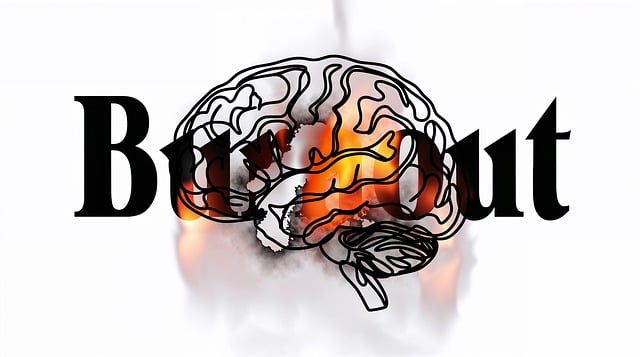The well-being of adult first responders is a critical but overlooked aspect, as they frequently face traumatic events and internalized stress leading to potential burnout. Specialized trauma support services are essential. Public awareness campaigns play a crucial role in reducing stigma around therapy, encouraging support-seeking behaviors among first responders, and promoting resilience through stress reduction and open dialogue. Effective communication strategies tailored to their unique challenges, such as trauma, are vital for these campaigns. Engaging communities, building trust, and dispel myths can lead to better mental health services access. Measuring the impact of these campaigns through data analysis helps refine strategies for sustainable positive changes in therapy for adults first responders.
Public awareness campaigns play a pivotal role in addressing critical mental health issues, especially among adult first responders. This article delves into the multifaceted development of such campaigns, focusing on understanding the unique stress and trauma faced by these individuals. We explore how targeted outreach through effective communication strategies can foster trust and encourage help-seeking behaviors. By examining successful case studies, we emphasize the importance of measuring impact and iterating for continuous improvement in therapy accessibility for adult first responders.
- Understanding Adult First Responder Stress and Trauma: Unveiling the Hidden Challenges
- The Role of Public Awareness Campaigns in Mental Health Support
- Designing Effective Communication Strategies for Targeted Outreach
- Engaging Communities: Building Trust and Encouraging Help-Seeking Behaviors
- Measuring Impact and Iterating: Ensuring Continuous Improvement in Campaign Effectiveness
Understanding Adult First Responder Stress and Trauma: Unveiling the Hidden Challenges

Many public awareness campaigns focus on child trauma or first responder stress, but there’s a critical gap when it comes to understanding the unique challenges faced by adult first responders. These individuals, often essential in crisis situations, bear witness to traumatic events and experience significant emotional toll. The pressure to be strong and composed can lead to internalized stress, anxiety, and potential burnout—all of which remain largely unseen yet deeply impactful.
Recognizing the hidden struggles of adult first responders is paramount. They often face complex emotions like guilt, fear, and post-traumatic stress after dealing with life-altering incidents. Access to specialized therapy for adults first responders, including trauma support services, becomes crucial in mitigating these challenges. Promoting burnout prevention strategies alongside anxiety relief measures can foster resilience and ensure these individuals receive the necessary care and recognition they deserve.
The Role of Public Awareness Campaigns in Mental Health Support

Public awareness campaigns play a pivotal role in addressing mental health issues by destigmatizing conversations around therapy and encouraging individuals to seek support. These initiatives are particularly crucial for first responders, who often face unique challenges such as trauma, burnout, and increased stress levels stemming from their demanding professions. By highlighting the importance of stress reduction methods and communication strategies within these campaigns, communities can foster an environment where first responders feel empowered to discuss their mental health openly.
The impact extends beyond individual relief; collective mental well-being contributes to improved community resilience. Effective awareness campaigns can equip first responders with tools to manage stress, prevent burnout, and enhance their ability to provide critical services. Through targeted outreach, they can reach out to these individuals who may be reluctant to ask for help, ensuring better access to therapy for adults and ultimately leading to healthier, more supportive communities.
Designing Effective Communication Strategies for Targeted Outreach

Designing effective communication strategies is crucial for targeted outreach in public awareness campaigns. When tailoring messages for specific groups, such as first responders or adults seeking therapy, understanding their unique needs and challenges is essential. This involves conducting thorough research to identify cultural nuances, personal experiences, and any barriers that might hinder engagement. For example, when addressing first responders, acknowledging the trauma they’ve encountered and framing communication around emotional healing processes can foster a sense of trust and encourage participation.
The chosen communication strategies should promote open dialogue and normalize discussions around mental health issues. By incorporating elements of self-esteem improvement, campaigns can empower individuals to recognize their resilience and take initiative towards recovery. Using accessible language, diverse media formats, and relatable content ensures the message resonates with the target audience. Ultimately, effective communication builds a bridge between communities and resources needed for emotional healing.
Engaging Communities: Building Trust and Encouraging Help-Seeking Behaviors

Engaging communities is a vital aspect of successful public awareness campaigns for mental health issues. Building trust within community members is essential to encourage open conversations about sensitive topics like therapy for adults and crisis intervention strategies among first responders. Effective engagement involves utilizing tailored communication strategies that resonate with diverse audiences, ensuring inclusivity and cultural sensitivity. By fostering strong relationships between community leaders, healthcare providers, and local organizations, these campaigns can dispel myths surrounding mental health treatment and reduce stigma.
Encouraging help-seeking behaviors requires creating safe spaces where individuals feel comfortable discussing their struggles. Crisis intervention guidance plays a crucial role in providing immediate support during times of crisis, offering practical solutions and directing people towards available resources. Through collaborative efforts involving Mental Health Policy Analysis and Advocacy, communities can develop comprehensive strategies that not only raise awareness but also ensure access to quality mental health services for all, including first responders who often bear the brunt of trauma and stress-related issues.
Measuring Impact and Iterating: Ensuring Continuous Improvement in Campaign Effectiveness

Measuring the impact of public awareness campaigns is a crucial step in ensuring their long-term effectiveness. By evaluating key metrics such as changes in knowledge, attitudes, and behaviors, organizations can gain valuable insights into what works and what needs improvement. This data allows for iterative adjustments to campaign strategies, making them more tailored and impactful over time. For example, when focusing on therapy for adults first responders, measuring the reach and engagement of awareness materials can help identify barriers to access.
Through continuous evaluation, mental wellness coaching programs development can be guided by what resonates most with diverse audiences. This iterative approach not only improves campaign effectiveness but also fosters a culture of open dialogue around mental illness stigma reduction efforts. Moreover, by regularly assessing outcomes, organizations can adapt their messaging and methods to support individuals in adopting self-care routine development for better mental health, ultimately leading to more sustainable positive changes.
Public awareness campaigns play a pivotal role in addressing the mental health challenges faced by adults first responders. By integrating strategies that target specific community needs, we can foster trust and encourage help-seeking behaviors. Measuring campaign impact is essential to iterate and enhance effectiveness, ultimately improving access to therapy for adults first responders. This multifaceted approach ensures that support reaches those who need it most, fostering resilience and promoting well-being within our communities.








